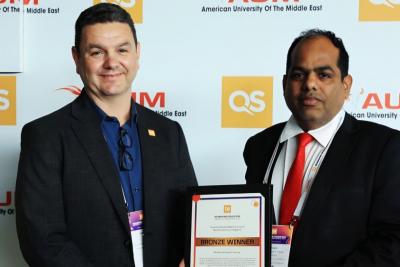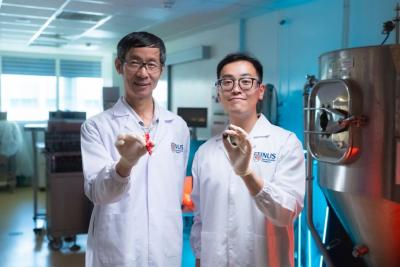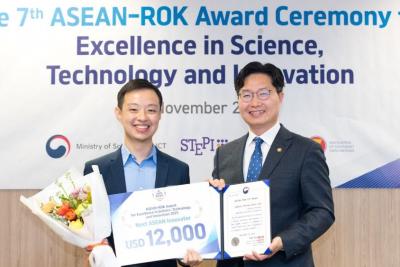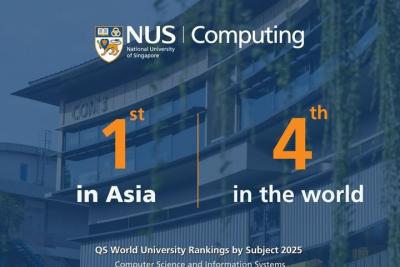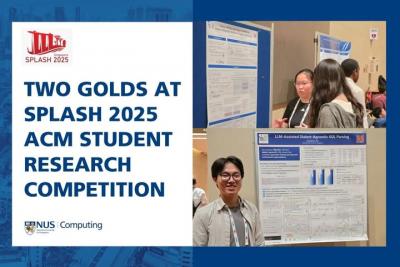Các nhà nghiên cứu của NUS và A*STAR phát triển cảm biến có thể đeo để phát hiện sớm bệnh tật
The novel sensor accurately measures markers such as cholesterol and lactate — crucial for the early detection of diseases
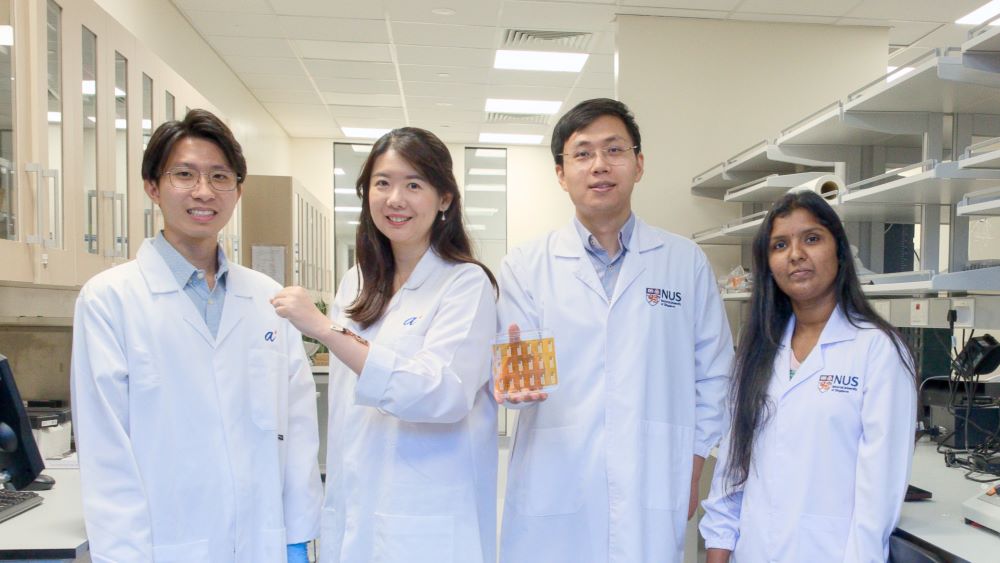
Asst Prof Liu Yuxin (second from right) from NUS Institute for Health Innovation & Technology (iHealthtech) and Department of Biomedical Engineering under the NUS College of Design and Engineering; Dr Yang Le (second from left), Principal Scientist and Head of the Sensors and Flexible Electronics Department of A*STAR’s Institute of Materials Research and Engineering (A*STAR’s IMRE); Mr Sherwin Tan (extreme left), Research Engineer, A*STAR’s IMRE; and Ms Archana Sundarapandi, Research Engineer at NUS iHealthtech, were part of the team that developed a wearable sensor that can detect biomarkers such as cholesterol and lactate directly from the skin. Photo: NUS iHealthtech
Detecting diseases early requires the rapid, continuous and convenient monitoring of vital biomarkers. Researchers from the National University of Singapore (NUS) and the Agency for Science, Technology and Research (A*STAR) have developed a novel sensor that enables the continuous, and real-time detection of solid-state epidermal biomarkers (SEB), a new category of health indicators.
Jointly led by Assistant Professor Liu Yuxin from the NUS Institute for Health Innovation & Technology as well as N.1 Institute for Health and the Department of Biomedical Engineering under the NUS College of Design and Engineering, and Dr Yang Le, Principal Scientist and Head of the Sensors and Flexible Electronics Department of A*STAR’s Institute of Materials Research and Engineering (A*STAR’s IMRE), the research team’s innovation offers a non-invasive method to monitor health by detecting biomarkers such as cholesterol and lactate— directly on the skin.
The team’s wearable, stretchable, hydrogel-based sensor overcomes the limitations of current methods that rely on biofluid samples, such as blood, urine and sweat. This makes it a promising alternative for wearable, continuous, and real-time health monitoring, facilitating the early detection of conditions such as cardiovascular diseases and stroke. It can also efficiently monitor athletes’ lactate levels, an indication of exhaustion and tissue hypoxia, which affect their performance. This development is especially pertinent to areas including chronic disease management, population-wide screening, remote patient monitoring and sport physiology.
The team’s findings were published in the journal Nature Materials on 12 June 2024. A*STAR’s Institute of High Performance Computing and Institute of Molecular and Cell Biology, as well as Nanyang Technological University, Singapore also contributed to the research.








